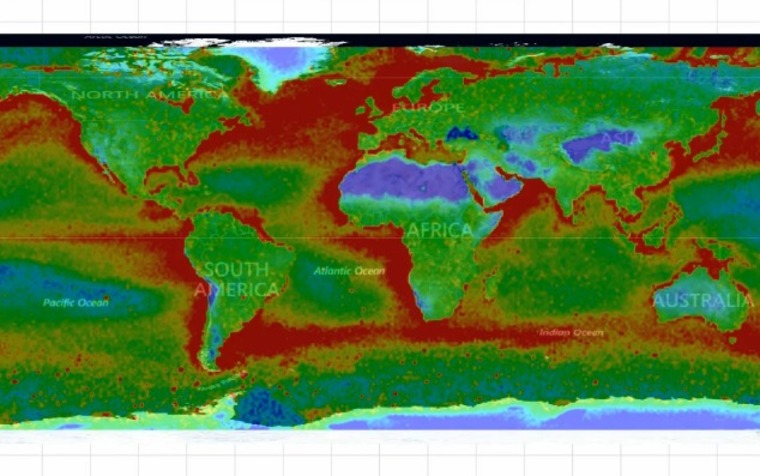Microsoft Research and UN scientists are embarking on a highly ambitious project: A computational model of an entire ecosystem, from the soil itself to the creatures that live on it.
Such a comprehensive model would be useful not just to biologists, but to city planners and legislators, who could see concrete predictions regarding things like deforestation and dams.
To model anything from nature properly is a monumental task, regardless of scale. A single atom, a single cell, or a single organism contains so much information and so many variables that it is effectively impossible to model them perfectly.
Modeling an entire ecosystem with any accuracy, then, is a task of mind-boggling complexity. But not too long ago, so was sequencing the human genome, or simulating the way proteins form and fold in the molecular soup of our bodies. Drew Purves at Microsoft Research in Cambridge thinks the time has come for what the company describes as a General Ecosystem Model (also known as GEM) — capable of simulating just about any ecosystem in the world.
Purves wrote an article for the journal Nature announcing the team's intentions, and calling for others to help out — because it's not a small project. They've already created a prototype, called the Madingley Model, which is already more ambitious than anything out there.
"There are a huge number of ecological and environmental models, but in our opinion, nothing that is yet as comprehensive as a GEM would be," Purves told NBC News in an emailed statement. Models for certain areas of the ocean, or specific types of forests, already exist, but can't be adapted easily. He wants to make one that's powerful enough to be applied anywhere, from the deep ocean to the high desert; you'd just need to put in the correct parameters.

It wouldn't be perfect, but you don't need a perfect model of something to make useful predictions: Tomorrow's weather, the effects of a drug, and the existence of subatomic particles like the Higgs Boson were all theorized from imperfect models. And Purves cautions that while the researchers' work has a broader range than anything out there, it's still missing a lot.
Even without simulating bacteria or the effects of certain features like streams, researchers can reach predictions that match up to the real world. A rise in temperature, for example, would kill off certain plants and cause others to thrive, which would affect the soil they live in, the herbivores that feed on them, and the carnivores that feed on them. It could all be simulated within the model.
But they still need data. Lots more data. Purves elaborates: "What we are really missing is good data on the state of whole ecosystems... how much herbivore biomass there is in total, or, how many individuals of each size class?" After all, a thousand, big wildebeest may consume more grass than small ones, and seek out higher territories. And since every creature ends up recycled into the ecosystem again, every statistic is important to keep track of.
Purves hopes that the model will enable not just advances in science, but in policy as well. With a true model of a state or region's ecosystem, the effects of dams, runoff, climate change, and other things can be calculated objectively and included as part of the lawmaking discussion. On that front, the researchers have been collaborating with the United Nations Environment Programme World Conservation Monitoring Centre to help hone their work for political relevance and broaden its applications.
It's a work in progress, but in a few years it could be a powerful resource for anyone looking into the effects of just about anything on the environment and its denizens. New updates to the project will be logged at the Computational Ecology and Environmental Science section of Microsoft Research.
Devin Coldewey is a contributing writer for NBCNews Digital. His personal website is coldewey.cc.
